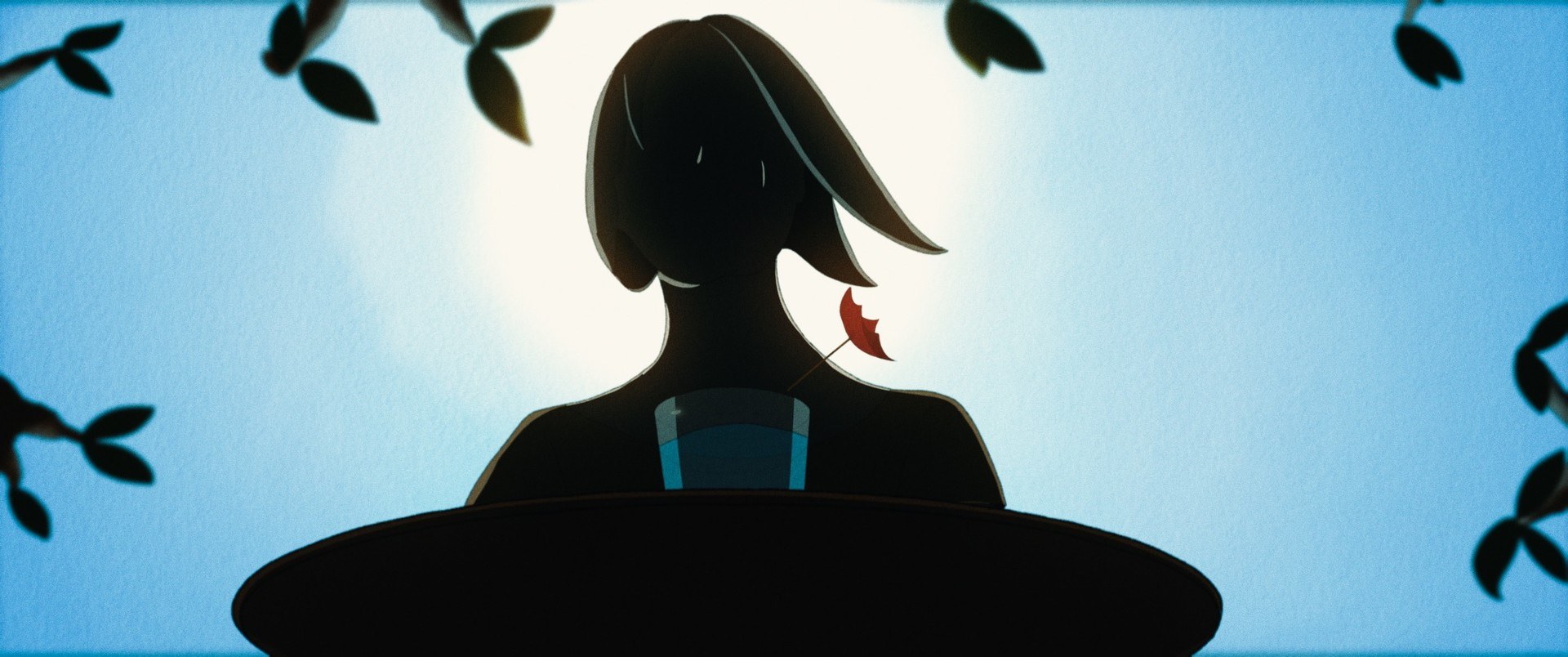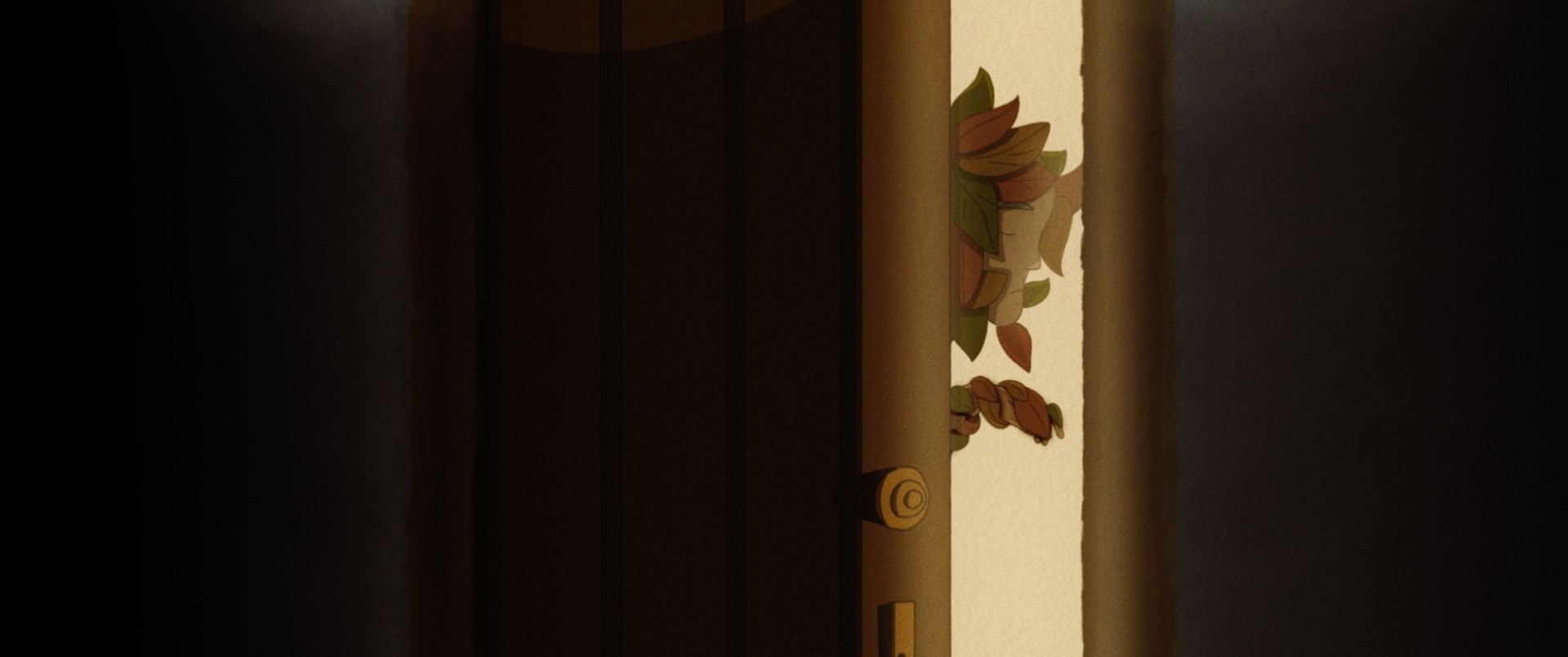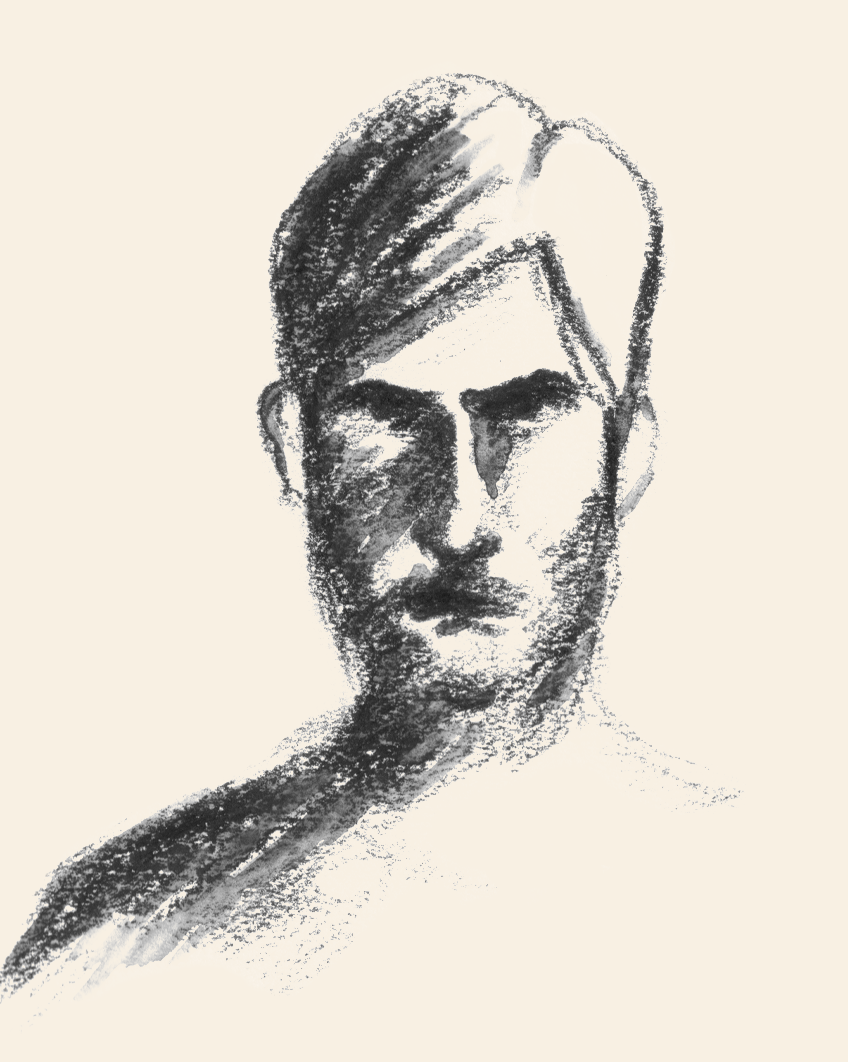
Case Study: Autumn
Pim Christian de Vries explains the creative process behind his short animation film Autumn.
Geplaatst op 15 februari 2022The short Autumn of Pim Christian de Vries is part of Euregion Film Festival 2022. For this case-study we spoke with him about making the film.
The idea
"I was sitting on a shaded patio, on a warm summer day when, all of the sudden, the weather took a turn for the worse and high winds arose. Trees were shaking, objects fell off the table and I was surprised by the sudden turmoil, which lasted no more than ten seconds and seemed to have come out of nowhere. The skies were blue again and what was left was a shattered glass on the rocks. It intrigued me; was the weather trying to tell me something? Was autumn presenting itself prematurely? Whatever it was, and I am rational enough to hold natural causes accountable for most things, it inspired me to write the short story: ‘Autumn’ in which the falling of the leaves and September gusts of wind form the backbone of the storyline."
Intelligible notes and Invisible scripts
"They are the protagonists, as they force change upon everything and everyone. Time is about inevitable transformation and deterioration, but nature itself is presented in cycles and nothing represents these cycles more than the passing of the seasons. It feels pompous to say that ‘time’ is the recurring theme in my work, as this is only my first serious animation, but it’s surely the most intriguing theme I can think of."
"Autumn is a very first step at grasping this mysterious matter, you could say.. Note that I didn’t actually write the story; I never did put anything to paper, nor did I make a storyboard. I - more or less - had a beginning and an end in mind, but it seemed like more fun to just see what would happen if I just started drawing. I basically decided by intuition how the story would run and which shot would follow the previous one. Just like a falling leaf; it will fall, but its exact trajectory is hard to predict (the first shots of a falling leaf are no coincidence in this sense). It’s interesting to work this way because the story unfolds in a way you cannot predict beforehand. As nothing is written in stone, there is always room for a spontaneous addition or a different direction to go in. You could say it’s directing, editing and writing all at the same time. Animation offers endless possibilities and ‘live-action’ pains, such as hiring extras or organising a set are non-existent."
"However, the inexhaustible possibilities of animation can also lead to paralysis. If you’re not constrained by anything, how will you ever finish a project? Well, as much as time gives us the inevitable and dramatic deterioration of life, it also gives one the perfect down-to-earth tool of constraining one’s options. I gave myself one year in total from start to finish to complete it, including postproduction, and adjusted my creative liberty accordingly."
"Another pitfall of working this way, however, is that making a correction in the story often involves throwing away fully drawn shots instead of just adjusting a few lines in the script, or changing parts of the storyboard. It takes me about a week to finish five seven seconds of animation (I work alone) so throwing away work is frustratingly throwing away intense labour. About a quarter of the hard work put into this film has not been used. This adds up to about two or three months, but at least I was keeping busy"

Metaphorical flora and fauna
"To me, creating a story is all about details that create a mood that is universally shared. Details that remind you of what a September night feels like, or how candlelight wiggles when a gust of wind passes. Or a warm lampoon that sheds a pleasant glow on its surrounding. These details are very important to me and they are a lot of fun to work on."
"Halfway through the film there is a grey fox that is disturbed by the sudden slamming of a door. Its appearance doesn’t have an obvious function, but it fits seamlessly into the story and adds to the general atmosphere of the film. I consider these additions as gifts, as they are not necessary but very welcome. As I said, they are also very rewarding to make and, in this sense, are predominantly gifts to myself! But there is also a huge amount of information to be expressed in details, such as symbolism. An owl symbolises the nightfall (and more!), pigeons are a sign of good luck and transformation, and the fox represents old age through its colour."
"Again, these tiny building bricks in the story are merely gifts. They are not necessary, but a lot of fun to ‘discover’ and I cannot restrain myself from putting these little things in there."

Watch this short at Euregion Film Festival
March 5, Royal Theater Heerlen. March 1-6, online.
Filmmaker before all
"I see myself foremost as a filmmaker and not as an animator. Animation is merely the form, albeit a form that feels extremely comfortable to work in. I had a dream of being a ‘live-action’ filmmaker once, but I never liked working on a set. Being surrounded by (a lot of) people, such as a crew, drains my energy and makes me want to go home as soon as possible, whereas I can draw and animate for days on end from behind my desk without wanting to stop and still work together with people. Also, the technicality of working on a filmset annoys me terribly; people screaming hysterically about their cameras and prime-lenses and constantly confusing ends with means. Nonetheless I learned a lot from ‘live-action’ filming and I think you will be able to see the cinematic approach of animation in my film. Hence my personal view that there is no difference between film and animation, or between fiction and documentary for all I care. It’s all sequenced images anyway."

(c) All visual material is used with the filmmaker's permission.